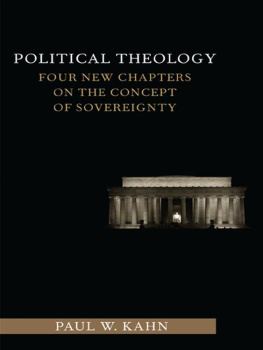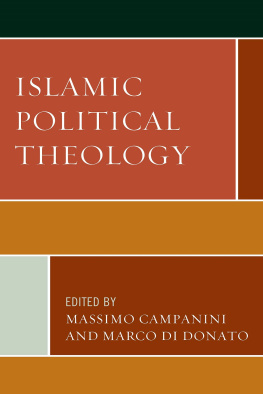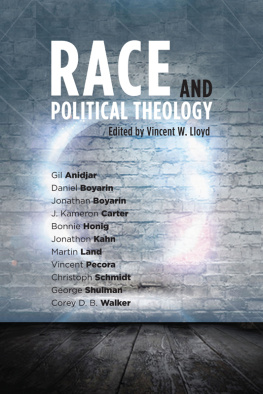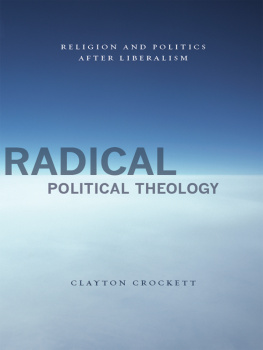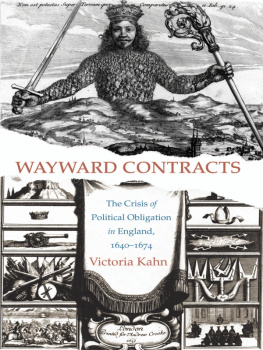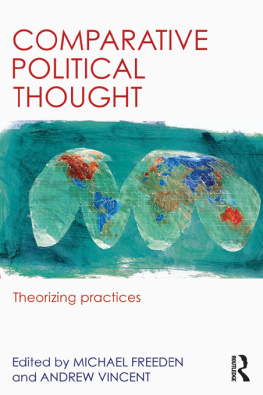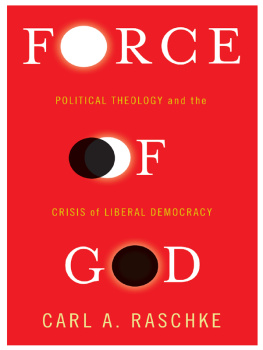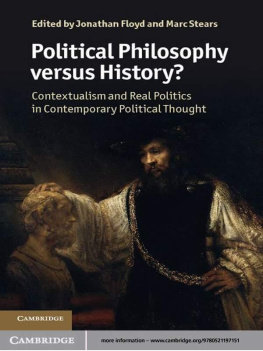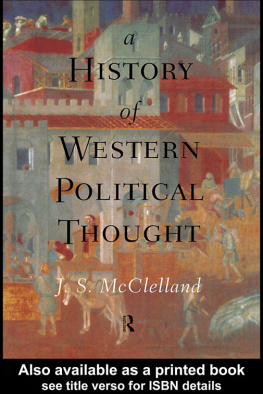Paul Kahn - Political Theology (Columbia Studies in Political Thought / Political History)
Here you can read online Paul Kahn - Political Theology (Columbia Studies in Political Thought / Political History) full text of the book (entire story) in english for free. Download pdf and epub, get meaning, cover and reviews about this ebook. year: 2011, publisher: Columbia University Press, genre: Religion. Description of the work, (preface) as well as reviews are available. Best literature library LitArk.com created for fans of good reading and offers a wide selection of genres:
Romance novel
Science fiction
Adventure
Detective
Science
History
Home and family
Prose
Art
Politics
Computer
Non-fiction
Religion
Business
Children
Humor
Choose a favorite category and find really read worthwhile books. Enjoy immersion in the world of imagination, feel the emotions of the characters or learn something new for yourself, make an fascinating discovery.
Political Theology (Columbia Studies in Political Thought / Political History): summary, description and annotation
We offer to read an annotation, description, summary or preface (depends on what the author of the book "Political Theology (Columbia Studies in Political Thought / Political History)" wrote himself). If you haven't found the necessary information about the book — write in the comments, we will try to find it.
Paul Kahn: author's other books
Who wrote Political Theology (Columbia Studies in Political Thought / Political History)? Find out the surname, the name of the author of the book and a list of all author's works by series.
Political Theology (Columbia Studies in Political Thought / Political History) — read online for free the complete book (whole text) full work
Below is the text of the book, divided by pages. System saving the place of the last page read, allows you to conveniently read the book "Political Theology (Columbia Studies in Political Thought / Political History)" online for free, without having to search again every time where you left off. Put a bookmark, and you can go to the page where you finished reading at any time.
Font size:
Interval:
Bookmark:
Political Theology
COLUMBIA STUDIES IN POLITICAL THOUGHT/POLITICAL HISTORY
COLUMBIA STUDIES IN POLITICAL THOUGHT/POLITICAL HISTORY
Dick Howard, General Editor
Columbia Studies in Political Thought/Political History is a series dedicated to exploring the possibilities for democratic initiative and the revitalization of politics in the wake of the exhaustion of twentieth-century ideological isms. By taking a historical approach to the politics of ideas about power, governance, and the just society, this series seeks to foster and illuminate new political spaces for human action and choice.
Pierre Rosanvallon, Democracy Past and Future, edited by Samuel Moyn (2006)
Claude Lefort, Complications: Communism and the Dilemmas of Democracy, translated by Julian Bourg (2007)
Benjamin R. Barber, The Truth of Power: Intellectual Affairs in the Clinton White House (2008)
Andrew Arato, Constitution Making Under Occupation: The Politics of Imposed Revolution in Iraq (2009)
Dick Howard, The Primacy of the Political: A History of Political Thought from the Greeks to the French and American Revolution (2009)
Robert Meister, After Evil: Human Rights Discourse in the Twenty-first Century (2011)
Political Theology
FOUR NEW CHAPTERS ON THE CONCEPT
OF SOVEREIGNTY
Paul W. Kahn
Columbia University Press New York

COLUMBIA UNIVERSITY PRESS
Publishers Since 1893
New York Chichester, West Sussex
cup.columbia.edu
Copyright 2011 Columbia University Press
All rights reserved
E-ISBN 978-0-231-52700-2
Library of Congress Cataloging-in-Publication Data
Kahn, Paul W., 1952
Political theology : four new chapters on the concept of sovereignty/Paul W. Kahn.
p. cm.(Columbia studies in political thought/political history)
Includes bibliographical references and index.
ISBN 978-0-231-15340-9 (cloth : alk. paper)ISBN 978-0-231-52700-2 (electronic)
1. Sovereignty. 2. Political theology. 3. Schmitt, Carl, 18881985. I. Title. II. Series.
JC327.K34 2011
320.1'5dc222010025215
A Columbia University Press E-book.
CUP would be pleased to hear about your reading experience with this e-book at .
References to Internet Web sites (URLs) were accurate at the time of writing. Neither the author nor Columbia University Press is responsible for URLs that may have expired or changed since the manuscript was prepared.
CONTENTS
IT IS A PLEASURE TO ADD PAUL W. KAHNS book to the Political Thought/Political History series. This book broadens the reach of the series, whose premise, expressed in the editors introduction to Claude Leforts Complications, can be summed up in the phrase no political thought without history, no historical thought without politics. Kahns book suggests another set of complementary imperatives, no politics without philosophy, no philosophy without politics. The Anglo-American discovery of the work of Carl Schmitt has unfortunately been more political than it has been philosophical. Kahn, a professor of law at Yale University, takes the opposite approach; concentrating on one relatively brief but central work by Carl Schmitt, Political Theology, he draws out philosophical implications of which Schmitt himself may not have been fully aware. What is more, he is able to do so because of his own intimate knowledge of American jurisprudence. By using simple examples from American legal experience, he shows that the radical reasoning that influenced Schmitts ownbad!political choices is founded on a philosophy of freedom that can be realized only when the freedom of philosophy is ensured. This, Kahn shows, is the central meaning of Schmitts often-cited but equally often misunderstood definition of the sovereign as he who decides on the exception.
Readers of this concise work will find not only that they come better to understand the thought of Carl Schmitt but also that they are helped to rethink the apparently self-evident values of liberal legal thought. They will have the pleasure of watching Paul Kahn interpret Carl Schmitts famous argument that all significant concepts of the modern theory of the state are secularized theological concepts in a straightforward dialogue that Kahn skillfully sets up with Schmitt. By avoiding lengthy scholarly debate, political polemic, and exegetical erudition, Kahn has produced a critical work that joins politics and philosophy in a unique synthesis.
DICK HOWARD
OVER THE COURSE OF THE LAST FEW YEARS, I have received advice and comments on this project from many, colleagues, friends, students, and even some strangers. More often than not, they disagreed with me. Still, they were generous in taking the time to deal seriously with the project. I greatly appreciated their encouragement, as well as their efforts to set me right. I tried to take in as much as I could, but there is much about which we will continue to disagree. I owe special thanks to my Yale Law School colleagues, Bruce Ackerman, Owen Fiss, and Robert Post. I also had the benefit of comments from two intellectual historians, Samuel Moyn and Jonathan Sheehan. As I get older, those who had been students become friends and colleagues. Several deserve special mention in connection with this manuscript: Ulrich Haltern, Benjamin Berger, and Mateo Taussig-Rubbo. The manuscript was the subject of a seminar at the Yale Law School, and I would like to thank the students of that class, who were unrestrained in letting me know what they thought. I especially want to thank Han Liu, Benjamin Johnson, Fernando Leon Munoz, Sophia Khan, and Kiel Brennan-Marquez for their help with the research. Thanks finally to Barbara Mianzo, upon whose administrative help I continue to rely.
THE PROBLEM OF CARL SCHMITT
Carl Schmitts Political Theology: Four Chapters on the Concept of Sovereignty is one of the most famous, as well as one of the most obscure, books in twentieth-century political theory. It is much cited by contemporary political and legal theorists, but those citations often seem to refer to just two canonical sentences: Sovereign is he who decides on the exception and All significant concepts of the modern theory of the state are secularized theological concepts. These are indeed critical claims, but standing alone they are as puzzling as they are shocking.
The claim of a theological origin for political concepts stands against the widely accepted belief that the turn away from religion by figures such as Locke, Hume, and Smithnot to speak of Machiavelli and Hobbeslaid the groundwork for the modern theory of the state. In a system of popular sovereignty, we do not know a he who can claim to be the sovereign; in our system of constitutional law, we do not know a state of exception.
Puzzling as these two famous sentences appear on first impression, most American readers have an intuition that Schmitt is pointing to at least some aspects of our political situation that are difficult to understand within the terms of contemporary political theory. We know, for example, that the American president is trailed by a military officer carrying a box with the nuclear attack codes. The President maintains a world-destroying power. Is this an example of the sovereign power to decide on the exception? Surely, such a decision would itself be exceptional not just in a political sense, but in a legal one as well. There would be no judicial review of the decision, no opportunity to challenge it by those affected, no due process, and no norm of law that the president could claim to be executing. Imagining such a moment of decision, we might find ourselves using religious concepts: Armageddon, for example. More generally, we are familiar with the idea that Americans practice a civil religion. How important are these aspects of our political life? And, what exactly is the relationship of faith to reason in our political practices? These too are political-theological questions.
Next pageFont size:
Interval:
Bookmark:
Similar books «Political Theology (Columbia Studies in Political Thought / Political History)»
Look at similar books to Political Theology (Columbia Studies in Political Thought / Political History). We have selected literature similar in name and meaning in the hope of providing readers with more options to find new, interesting, not yet read works.
Discussion, reviews of the book Political Theology (Columbia Studies in Political Thought / Political History) and just readers' own opinions. Leave your comments, write what you think about the work, its meaning or the main characters. Specify what exactly you liked and what you didn't like, and why you think so.

